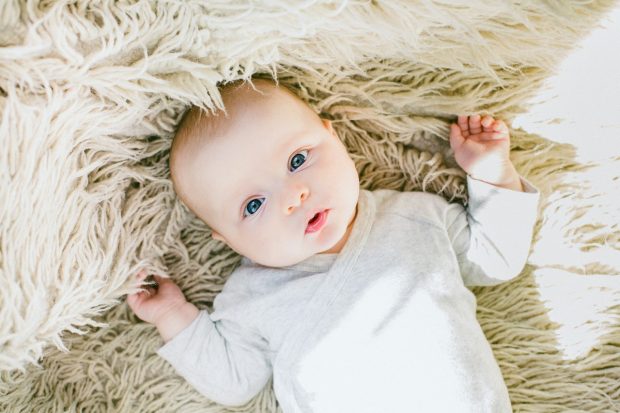Description: Find the best organic diapers to solve both the problem of polluting the environment and skin irritation on your baby. Get diapers that seal urine to prevent leaks without keeping the baby wet. Here are suggestions to consider.
Organic Diapers: Eco-Friendly and Non-Toxic Options
There are two reasons you should opt for an eco-friendly diaper brand for your baby. First, many diapers are treated with irritants and chemicals that can be harsh on the baby’s sensitive skin. Second, many diapers are made with synthetic materials that will sit in landfills for hundreds of years if not recycles. This dumping will affect the environment and many generations to come. Organic diapers shield you from these problems. Plus, if you are already giving your baby organic formula, why not keep their diapers organic as well?”
But, besides these organic diaper benefits, you don’t want to worry about leaks and blowouts. You need to search for natural diapers that prevent leaks and blowouts while working correctly.
Here are options for diapers if you are concerned about certainly questionable chemicals and would love to have the same experience as conventional diapers.
Why Choose Biodegradable, Non-ToxicDiapers?
Are organic diapers better? Besides being good for the environment, non-toxic cloth diapers are supposed to be good for your baby. The diapers contain fewer harmful ingredients and will not expose your little one to irritations.
Diapers are made up of three parts, the back sheet, the top sheet, and a center sheet, besides sodium polyacrylate (the absorbent gel). In standard diapers, these parts could contain toxic chemicals. The top sheet, which makes contact with your baby’s skin, is made of polypropylene, a non-biodegradable petroleum-based plastic. While the product has low toxin levels, it still contains chemicals that might be harmful in high doses.
Non-toxic diapers give you alternatives to these harmful chemicals. Many organic diapers use plant-based materials such as wood pulp, and most are fragrance-free. They don’t use petroleum-based materials, which are known to cause rashes and allergic reactions.
The Best Natural Ingredients for Diapers

When you are out searching for the best organic diapers, you want to avoid harsh chemicals. Manufacturers may not be required to disclose the ingredients they use, so some companies will not reveal what is in their diapers. In case you are asking, “what are organic diapers made of”, most natural and organic diapers use bamboo fibers. Bamboo is sustainable, eco-friendly, and absorbent. It protects the environment, and its fibers are soft, silky, and hypoallergenic, which is perfect for sensitive skin. Besides, bamboo grows rapidly and thrives without needing potentially harmful chemicals.
You will also need to inspect for things like natural dyes, inks, and adhesives. These could sneak harmful chemicals into an eco-friendly diaper. And for the baby’s bottom, consider a natural diaper that is chlorine-free and free from added lotions, latex items, perfumes, and fragrances.
How to Choose Non-Toxic Diapers
There’s no variation on how to use organic diapers compared to traditional diapers. The challenge comes in choosing the right brand. You want to take your baby’s health into account when shopping. A baby’s skin is thinner and more permeable, so you want to protect them from exposure to toxins.
However, having a non-toxic label is not enough as this does not mean anything unless you find a third-party certification. When out shopping, look for the following non-toxic ingredients in baby diapers:
Non-Toxic Ingredients to Consider
Chlorine-Free: Chlorine is used to bleach diapers. You should be concerned about the long-term and short-term health impacts of diapers that contain this ingredient. Also, chlorine is toxic to aquatic life and has long-lasting effects, making it bad for the environment.
Fragrances: Dyes, fragrances, and plastics are used in many diaper brands. When a company lists “fragrance” in their ingredients list, it means they are withholding the full list of ingredients in the fragrance. The fragrance could contain phthalates, known as endocrine disruptors. Products that contain non-descript fragrances are a risk to your baby’s skin. Scrutinizing ingredients means you will not need to deal with organic diaper rash treatment.
Volatile Organic Compounds (VOCs): Most disposable diapers contain VOCs, chemicals with high vapor pressure. VOCs are commonly used in disposable diapers and are contained in chemicals such as xylene, ethylbenzene, and toluene. These chemicals evaporate at room temperature and can cause damage to the kidneys, the liver, the lungs, and the respiratory system.
Conclusion
Investing in a biodegradable, non-toxic diaper is an important decision for your baby. Due to the prolonged use, traditional diapers expose your baby to toxic substances. If you weigh the organic disposable diapers’ pros and cons, you will find many benefits. While organic diapers could retail from 20 to 60 percent more, your baby’s health is placed in safe hands.
Which organic, eco-friendly diaper brand do you use for your baby? Share in the comments below to help other parents.
Author’s Bio: Rachel Hudson is a blogger with a passion for topics in diverse industries. She enjoys the research process and writes content to inform and educate. She is an enthusiastic reader who also finds pleasure in traveling and exploring unique cultures. Rachel is also a wife and mother of two daughters.
Read More:
9 best baby shower gift ideas
EcoWalk. Health benefits of natural organic fabrics (II): organic cotton fabric
How to clean your house without harmful chemicals
Tips for raising a child with special needs


